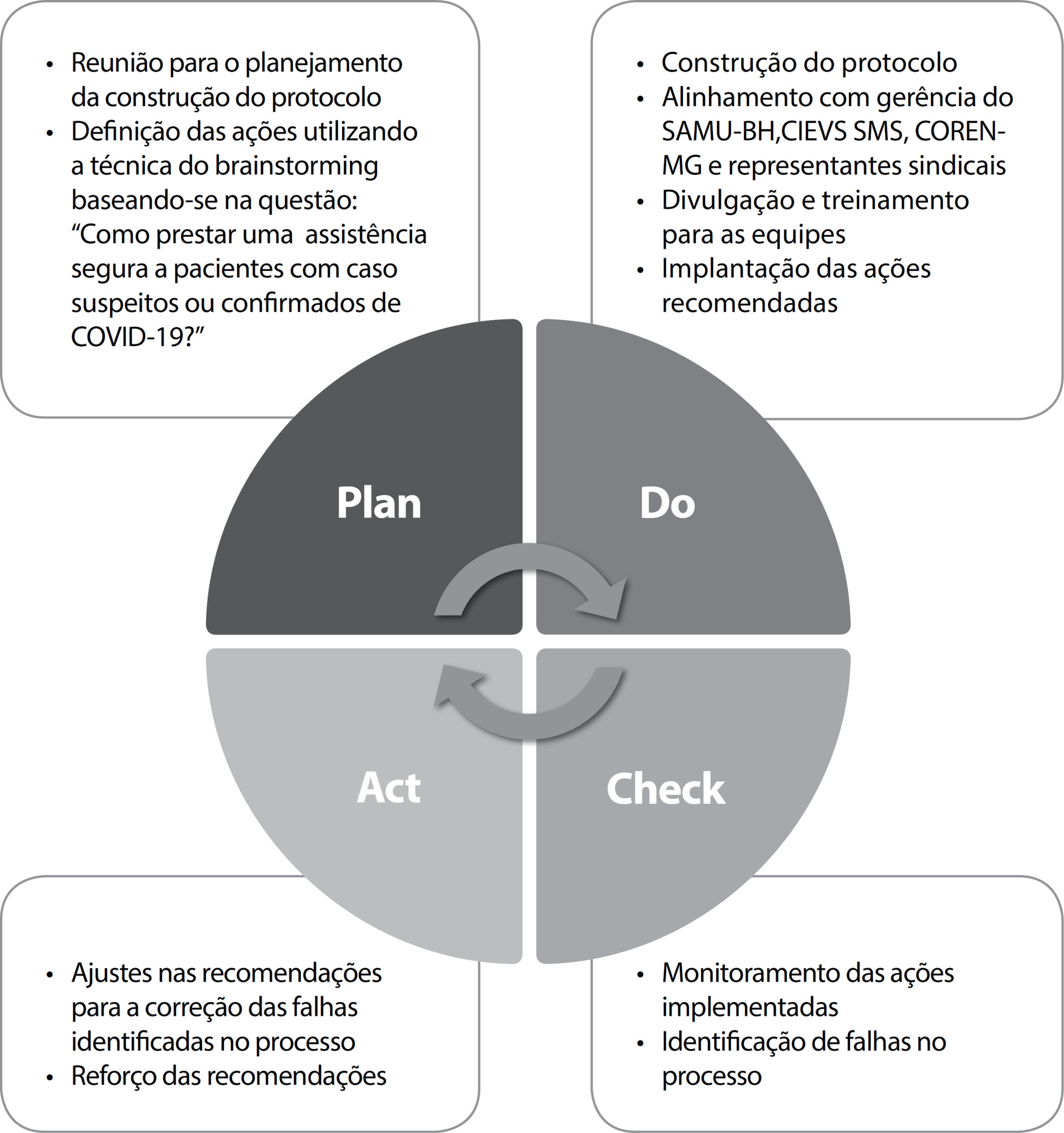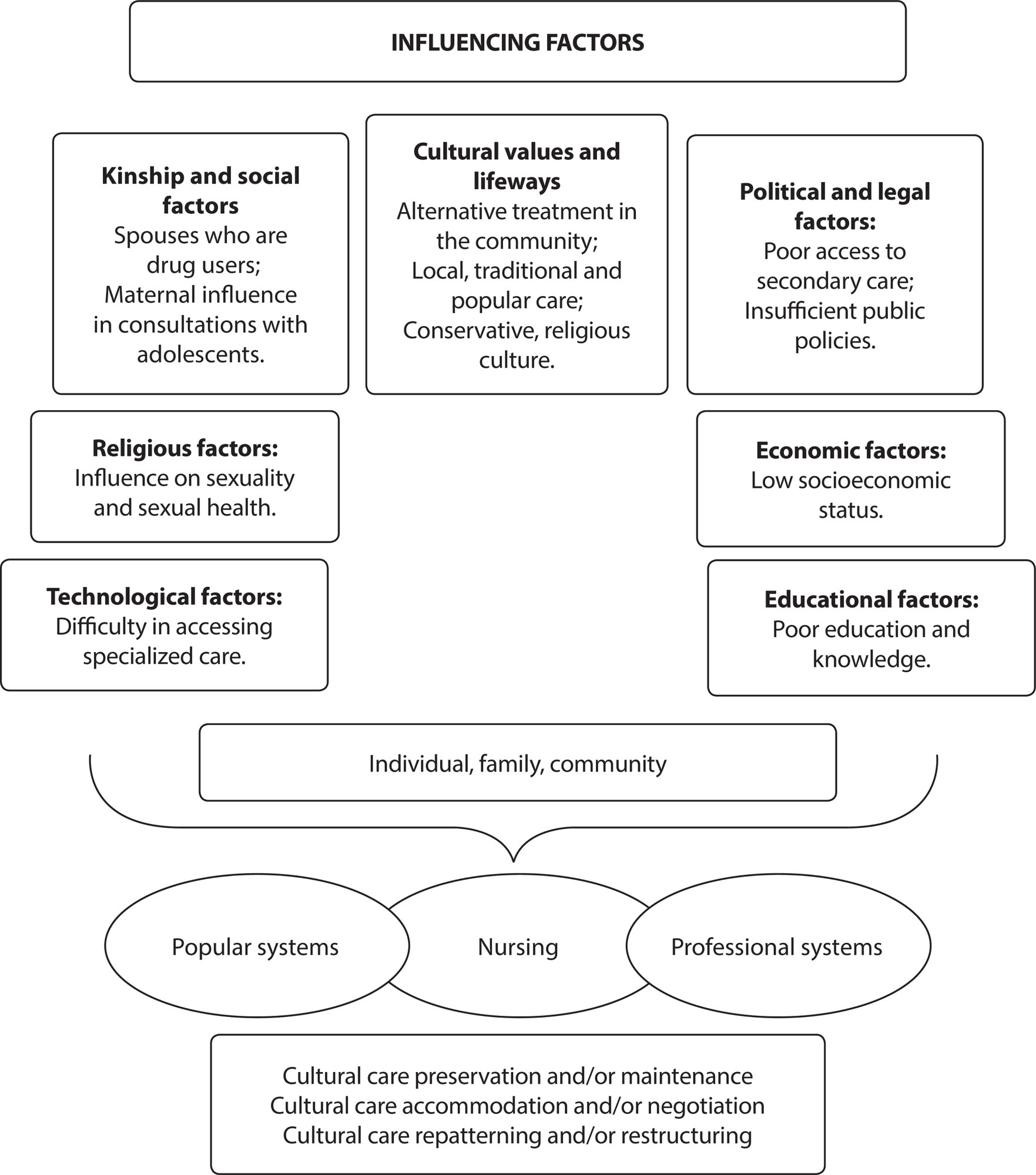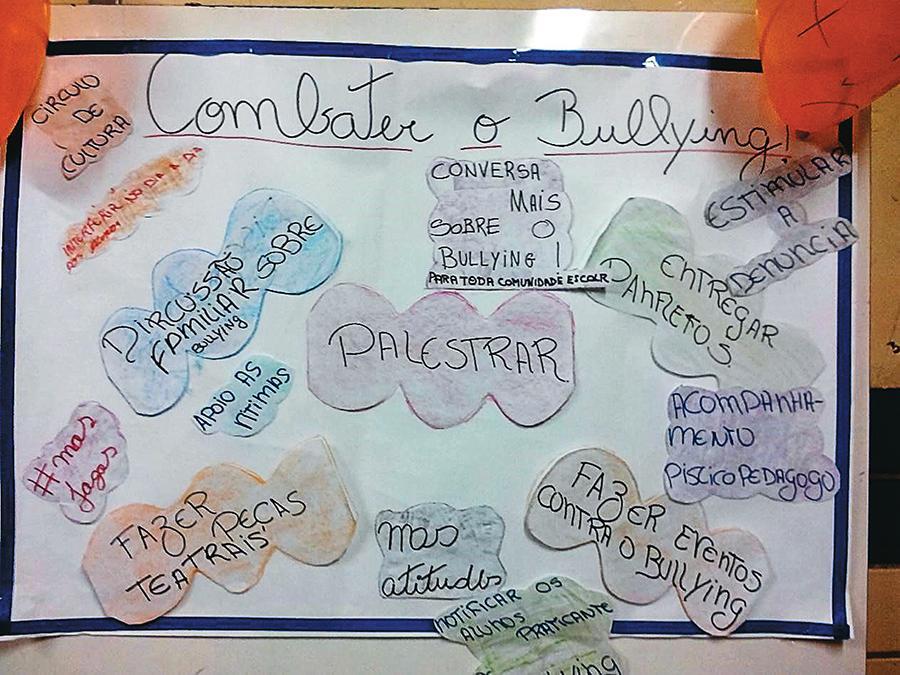-
ARTÍCULO ORIGINAL08/12/2024
Initial nipple damages in breastfeeding women: analysis of photographic images and clinical associations
Revista Brasileira de Enfermagem. 2024;77(1):e20220773
Resumen
ARTÍCULO ORIGINALInitial nipple damages in breastfeeding women: analysis of photographic images and clinical associations
Revista Brasileira de Enfermagem. 2024;77(1):e20220773
DOI 10.1590/0034-7167-2022-0773
Visualizações0Ver maisABSTRACT
Objective:
to analyze the initial nipple damage degree by breastfeeding practice and to associate findings with clinical manifestations of breastfeeding women.
Methods:
a retrospective, cross-sectional study with primary data and photographic images database from two randomized clinical trials. Photographic images were analyzed by two independent evaluators using the Nipple Trauma Score. For analysis, the chi-square, Mann-Whitney tests and Kappa coefficient were applied.
Results:
115 breastfeeding women and their respective 186 photographic images were analyzed. The degree of agreement of evaluators using the Nipple Trauma Score was 93.6%. The nipple pain score during breastfeeding was moderate and compromised more than 25% of the nipple surface area.
Conclusions:
assistance to breastfeeding women should prioritize nipple pain intensity instead of the nipple damage size.

-
ARTÍCULO ORIGINAL08/12/2024
Safe practices for bed bathing in the intensive care unit: validation of a checklist
Revista Brasileira de Enfermagem. 2024;77(1):e20230135
Resumen
ARTÍCULO ORIGINALSafe practices for bed bathing in the intensive care unit: validation of a checklist
Revista Brasileira de Enfermagem. 2024;77(1):e20230135
DOI 10.1590/0034-7167-2023-0135
Visualizações0Ver maisABSTRACT
Objective:
To validate a checklist for safe bathing in critically ill patients.
Methods:
This is a methodological and quantitative study. Researchers developed a checklist for safe bathing in critically ill patients consisting of 41 items, which were submitted to the apparent and content validation process, evaluated by eleven judges, and interobserver reliability. For reliability analysis, the instrument was applied in 54 bed bath procedures in the ICU; Kappa and CHF tests were used.
Results:
In the apparent and content validation, adjustments were made according to the judges’ suggestions. Kappa values ranged from moderate to almost perfect (0.462 to 0.962), and, in some items, there was 100% agreement; the reliability of the instrument was excellent (ICC = 0.962).
Conclusion:
The instrument proved to be dependable and easy to apply. Its use will contribute to safe bed bathing and subsidize interventions aimed at increasing the quality of care.

-
ARTÍCULO DE REVISIÓN29/11/2024
Assessment of knowledge in oncology about care for transgender people: a scoping review
Revista Brasileira de Enfermagem. 2024;77:e20230532
Resumen
ARTÍCULO DE REVISIÓNAssessment of knowledge in oncology about care for transgender people: a scoping review
Revista Brasileira de Enfermagem. 2024;77:e20230532
DOI 10.1590/0034-7167-2023-0532
Visualizações0Ver maisABSTRACT
Objective:
to identify evidence available in the literature on instruments and methodologies used to assess healthcare professionals’ knowledge about cancer care for the transgender population.
Methods:
a scoping review was conducted in seven databases, including studies that answered the question: what is the healthcare professionals’ level of knowledge about cancer care for the transgender population?
Results:
forty-one articles were selected that dealt specifically with healthcare professionals’knowledge in relation to care for the LGBTQIAPN+ population, especially the transgender population. Eighteen studies assessed patients’ perceptions of professionals’knowledge, whereas other studies used their own assessment tools, considering the global context of LGBTQIAPN+ health.
Conclusions:
there is no tested and validated instrument that assesses the knowledge about the transgender population’s oncological health, highlighting the need to construct and validate an instrument focused on this population’s needs.

-
ARTÍCULO ORIGINAL29/11/2024
Sleep quality of vulnerable elderly people: associated factors
Revista Brasileira de Enfermagem. 2024;77:e20230283
Resumen
ARTÍCULO ORIGINALSleep quality of vulnerable elderly people: associated factors
Revista Brasileira de Enfermagem. 2024;77:e20230283
DOI 10.1590/0034-7167-2023-0283
Visualizações0Ver maisABSTRACT
Objective:
To identify factors associated with poor sleep quality in elderly dependent individuals in social vulnerability.
Method:
Cross-sectional study with 59 elderly dependent individuals assisted by Family Health Units in São Carlos/SP. The following tools were used: Katz Index, Lawton and Brody Scale, Pittsburgh Sleep Quality Index, Addenbrooke’s Cognitive Examination Revised, Fried’s Frailty Phenotype, Geriatric Depression Scale (15 items), Perceived Stress Scale, Family APGAR, Social Support Scale from the Medical Outcomes Study, and World Health Organization Quality of Life, abbreviated and “old” versions.
Results:
The majority of participants were women (52.5%), aged 60-74 years (71.1%), and had poor sleep quality (76.2%). Stress (OR=1.12; 95%CI=1.02-1.22) and polypharmacy (OR=7.39; 95%CI=1.22-44.73) increased the chances of poor sleep quality, while physical activity decreased these chances (OR=0.15; 95%CI=0.02-0.79).
Conclusion:
Stress and polypharmacy are associated with poor sleep quality in elderly dependent individuals.
-
ARTÍCULO DE REVISIÓN22/11/2024
Transition to family parenting in the face of the first child: a scoping review
Revista Brasileira de Enfermagem. 2024;77(5):e20230487
Resumen
ARTÍCULO DE REVISIÓNTransition to family parenting in the face of the first child: a scoping review
Revista Brasileira de Enfermagem. 2024;77(5):e20230487
DOI 10.1590/0034-7167-2023-0487
Visualizações1Ver maisABSTRACT
Objectives:
to identify and summarize the elements that characterize the family transition process in relation to the first child.
Methods:
a scoping review was carried out based on JBI methodology, in six databases, following the Preferred Reporting Items for Systematic reviews and Meta-Analyses extension for Scoping Reviews checklist.
Results:
ten articles were included with factors characterizing the transition, such as hindering/facilitating conditions that influence the process, important support structures in adaptation and strategies/responses used in the transition process.
Final Considerations:
elements characterizing the transition process in relation to the first child were identified. However, no theoretical explanation for this was identified. Further research should be carried out to obtain a deeper understanding of this process.

-
22/11/2024
Social Technology in the Prevention of Adolescent Violence: documentary production
Revista Brasileira de Enfermagem. 2024;77(5):e20230298
Resumen
Social Technology in the Prevention of Adolescent Violence: documentary production
Revista Brasileira de Enfermagem. 2024;77(5):e20230298
DOI 10.1590/0034-7167-2023-0298
Visualizações0Ver maisABSTRACT
Objective:
To report the development of a technological innovation in the form of a documentary, aimed at disseminating actions for preventing violence against adolescents within the context of Primary Health Care.
Methods:
The documentary was developed through action research and interventions with adolescents in the territory of a Health Unit, conducted between 2020 and 2022, using Social Technology as both an action strategy and a conceptual reference.
Results:
The Social Technology proposal, created through workshops and seminars, resulted in a documentary focusing on violence prevention, involving 48 adolescents. The documentary’s script, collectively developed, portrays a soccer match between teams symbolizing peace and violence, with peace ultimately prevailing. The documentary is six minutes long.
Final Considerations:
The documentary has proven to be an effective Social Technology tool among adolescents, as it fosters critical thinking, is accessible, has potential for digital dissemination, and appeals to the target audience.
-
ARTÍCULO ORIGINAL22/11/2024
Prevalence of prescription and effectiveness of analgesia for treating vaginal delivery pain
Revista Brasileira de Enfermagem. 2024;77(5):e20230327
Resumen
ARTÍCULO ORIGINALPrevalence of prescription and effectiveness of analgesia for treating vaginal delivery pain
Revista Brasileira de Enfermagem. 2024;77(5):e20230327
DOI 10.1590/0034-7167-2023-0327
Visualizações0Ver maisABSTRACT
Objectives:
to assess pain management during labor.
Methods:
a cross-sectional study was carried out by reviewing medical records and conducting postpartum interviews. Prevalence and effectiveness of analgesia were assessed.
Results:
the prevalence of non-pharmacological analgesia was 61.86% of 215 women in labor in Obstetric Center and 82.51% of 62 in midwife-led unit. Prevalence of severe pain, on the Visual Analogue Scale, before and after non-pharmacological analgesia, was from 92.16% to 64.04% (p=0.00) in Obstetric Center and from 85.96% to 52.63% (p=0.01) in midwife-led unit. Prevalence of pharmacological analgesia in Obstetric Centers was 15.81%, with no variation in severe pain (p=0.57). Patients’ request for analgesia was associated with education (p=0.00) and pain intensity (p=0.02).
Conclusions:
non-pharmacological analgesia improved pain intensity. Prevalence of pharmacological analgesic prescription was lower than that identified in developed countries. Pain management needs to consider the preferences and needs of women in labor.
-
ARTÍCULO ORIGINAL24/06/2020
Prática do aleitamento materno em comunidades quilombolas à luz da teoria transcultural
Revista Brasileira de Enfermagem. 2020;73(4):e20190191
Resumen
ARTÍCULO ORIGINALPrática do aleitamento materno em comunidades quilombolas à luz da teoria transcultural
Revista Brasileira de Enfermagem. 2020;73(4):e20190191
DOI 10.1590/0034-7167-2019-0191
Visualizações0RESUMO
Objetivos:
identificar fatores que interferem na prática de aleitamento materno exclusivo em comunidades quilombolas.
Métodos:
pesquisa qualitativa fundamentada na Teoria Transcultural proposta por Madeleine Leininger, realizada com mães quilombolas. Para coleta de dados, utilizou-se a entrevista semiestruturada, realizada no período de junho 2018 a janeiro 2019. A análise de conteúdo foi guiada pelo modelo interativo de Miles e Huberman.
Resultados:
revelou que mitos e costumes culturais intergeracionais interferem na prática do aleitamento materno, e identificou a influência da profissional enfermeira nas boas práticas do aleitamento materno.
Considerações Finais:
os fatores culturais e intergeracionais favorecem o desmame precoce e expõem a criança ao adoecimento.
Palavras-chave: Aleitamento MaternoEnfermagem TransculturalPolíticas PúblicasPopulações VulneráveisSaúde da CriançaVer mais -
ARTÍCULO ORIGINAL21/09/2020
Vulnerabilidades para a criança prematura: contextos domiciliar e institucional
Revista Brasileira de Enfermagem. 2020;73:e20190218
Resumen
ARTÍCULO ORIGINALVulnerabilidades para a criança prematura: contextos domiciliar e institucional
Revista Brasileira de Enfermagem. 2020;73:e20190218
DOI 10.1590/0034-7167-2019-0218
Visualizações0RESUMO
Objetivo:
Analisar situações vulneráveis para crianças prematuras em cuidado domiciliar nos primeiros seis meses após a alta.
Método:
Estudo qualitativo, na perspectiva da hermenêutica filosófica, realizado em um município brasileiro em região de fronteira. Foram conduzidas entrevistas em profundidade, com análise de dados pela interpretação de sentidos, com 18 mães de crianças prematuras egressas de unidade hospitalar, perfazendo 25 visitas domiciliares e 56 contatos telefônicos.
Resultados:
Relatos maternos expressam situações de relações vulneráveis, movimentos de preocupações e necessidades de cuidados, singularidades do desenvolvimento do bebê prematuro, e repercussões das rotinas institucionais no cuidado em domicílio.
Considerações finais:
Há circunstâncias vulneráveis da prematuridade que reafirmam dimensões individuais, sociais e institucionais interligadas. Importante destacar que a dimensão institucional envolve a responsabilidade dos profissionais de saúde em não ampliar as vulnerabilidades individuais e sociais, e sim promover o cuidado e buscar reduzir situações que geram ameaças, incertezas, preocupações e danos.
Palavras-chave: Cuidado da CriançaPromoção da SaúdeRecém-Nascido PrematuroRelações Mãe-FilhoVulnerabilidade em SaúdeVer mais -
ARTÍCULO ORIGINAL21/05/2021
Adesão da equipe de enfermagem às ações de segurança do paciente em unidades neonatais
Revista Brasileira de Enfermagem. 2021;74(2):e20200765
Resumen
ARTÍCULO ORIGINALAdesão da equipe de enfermagem às ações de segurança do paciente em unidades neonatais
Revista Brasileira de Enfermagem. 2021;74(2):e20200765
DOI 10.1590/0034-7167-2020-0765
Visualizações1RESUMO
Objetivos:
descrever a adesão da equipe de enfermagem às ações de segurança do paciente em unidades neonatais por meio de um instrumento validado.
Métodos:
estudo transversal, realizado mediante observação direta da equipe de enfermagem e análise descritiva de 182 registros do “Checklist de segurança do paciente no cuidado de enfermagem na internação em Unidades de Terapia Intensiva Neonatal” em um hospital em Belo Horizonte.
Resultados:
evidenciou-se adesão maior que 90,0% nas unidades quanto ao uso da pulseira de identificação e orientação dos acompanhantes. Identificou-se 79,0% de ausência de conferência da pulseira de identificação e 59,0% de ausência de avaliação das travas das rodas do berço. Três dos 21 itens contemplados no checklist não apresentaram não conformidades.
Conclusões:
constatou-se adesão parcial às ações de segurança do paciente, especialmente no que tange às metas identificação do paciente e prevenção de quedas, o que expõe os neonatos a eventos adversos evitáveis.
Palavras-chave: Equipe de EnfermagemLista de ChecagemNeonatologiaQualidade da Assistência à SaúdeSegurança do PacienteVer mais -
ARTÍCULO ORIGINAL10/02/2020
Transtornos mentais comuns em técnicos de Enfermagem de um hospital universitário
Revista Brasileira de Enfermagem. 2020;73(1):e20180513
Resumen
ARTÍCULO ORIGINALTranstornos mentais comuns em técnicos de Enfermagem de um hospital universitário
Revista Brasileira de Enfermagem. 2020;73(1):e20180513
DOI 10.1590/0034-7167-2018-0513
Visualizações0RESUMO
Objetivo:
Verificar a prevalência de transtornos mentais comuns em técnicos de enfermagem e fatores associados.
Método:
Estudo transversal, analítico, realizado em um hospital universitário. Utilizaram-se um questionário composto por variáveis sociodemográficas, de formação e ocupacionais e o Self Reporting Questionnaire-20 para verificar a presença de transtornos mentais comuns. Realizou-se a análise de associação por meio do teste de qui-quadrado, com nível de significância de 5%.
Resultados:
Participaram 280 técnicos de enfermagem. A prevalência de transtornos mentais comuns foi de 46,9%. As variáveis renda familiar (p=0,021) e trabalho exclusivo na área da saúde (p<0,001) apresentaram-se associadas ao desfecho. Observou-se maior prevalência de TMC entre os indivíduos com renda familiar inferior a quatro salários mínimos (RP=1,41) e entre os profissionais que trabalhavam exclusivamente na área de saúde (RP=1,95).
Conclusão:
Aproximadamente metade dos técnicos de enfermagem de hospital universitário apresentou transtornos mentais comuns, que foram associados a aspectos econômico e ocupacional.
Palavras-chave: Hospitais UniversitáriosSaúde do TrabalhadorSaúde MentalTécnicos de EnfermagemTranstornos MentaisVer mais
-
ARTÍCULO ORIGINAL10/02/2020
Relationship between quality of life, self-esteem and depression in people after kidney transplantation
Revista Brasileira de Enfermagem. 2020;73(1):e20180245
Resumen
ARTÍCULO ORIGINALRelationship between quality of life, self-esteem and depression in people after kidney transplantation
Revista Brasileira de Enfermagem. 2020;73(1):e20180245
DOI 10.1590/0034-7167-2018-0245
Visualizações0Ver maisABSTRACT
Objective:
to assess the relationship between health-related quality of life with depression and self-esteem of people after kidney transplantation.
Method:
a cross-sectional study of 47 outpatients from October 2016 to February 2017. The following tools were applied: The Medical Outcomes Study 36-Item Short-Form Health Survey, Beck Depression Inventory and Rosenberg Self-Esteem Scale. Descriptive statistics and Spearman correlation were used.
Results:
women had lower scores for health-related quality of life. Young adults, people with up to one and a half years of transplantation and those who had dialysis for more than one year had higher scores.
Conclusion:
the health-related quality of life of people with chronic kidney disease after transplantation ranged from good to excellent. The presence of depression was not identified. The relationship of data indicates that the higher the quality of life, the better the self-esteem assessment.
-
INFORME DE EXPERIENCIA29/09/2022
Reorganização da assistência pré-hospitalar móvel na pandemia de Covid-19: relato de experiência
Revista Brasileira de Enfermagem. 2022;75:e20200826
Resumen
INFORME DE EXPERIENCIAReorganização da assistência pré-hospitalar móvel na pandemia de Covid-19: relato de experiência
Revista Brasileira de Enfermagem. 2022;75:e20200826
DOI 10.1590/0034-7167-2020-0826
Visualizações0RESUMO
Objetivo:
Descrever a reorganização do Serviço de Atendimento Móvel de Urgência de Belo Horizonte durante a pandemia do novo coronavírus, utilizando a ferramenta de qualidade PlanDo-Check-Act.
Métodos:
Estudo descritivo, do tipo relato de experiência, sobre a reorganização da assistência num serviço de atendimento pré-hospitalar móvel durante a pandemia do novo coronavírus, no período de março a julho de 2020. Foi aplicada a ferramenta da qualidade Plan-Do-Check-Act para condução do processo.
Resultados:
Elaboração de protocolo assistencial, reuniões, treinamentos, acréscimo de ambulâncias, contratação de profissionais e outras ações foram realizadas, com subsequente avaliação e monitoramento. Ao serem identificadas falhas ou novas necessidades, ações e mudanças foram implementadas mantendo-se o monitoramento e avaliação na rotina do trabalho.
Considerações finais:
A reorganização do serviço por meio da construção de um protocolo e tendo como ferramenta de gestão o Plan-Do-Check-Act foi essencial para promover uma assistência segura aos profissionais e aos pacientes.
Palavras-chave: Administração de Serviços de SaúdeAmbulânciasAssistência Pré-HospitalarInfecções por CoronavirusPandemiasVer mais
-
ARTÍCULO ORIGINAL21/09/2020
Transcultural theory in nursing care of women with infections
Revista Brasileira de Enfermagem. 2020;73:e20190586
Resumen
ARTÍCULO ORIGINALTranscultural theory in nursing care of women with infections
Revista Brasileira de Enfermagem. 2020;73:e20190586
DOI 10.1590/0034-7167-2019-0586
Visualizações0Ver maisABSTRACT
Objective:
To analyze how nurses consider, in their practice of healthcare, the sociocultural context of women with sexually transmitted infections.
Method:
Qualitative research, carried out in October 2017, with ten nurses working in teams of the Estratégia de Saúde da Família (Family Health Strategy). The data were collected through semi-structured interviews, subsequently transcribed, and submitted to the organization supported by the Discourse of the Collective Subject method and analyzed according to Madeleine Leininger’s transcultural theory.
Results:
Nurses identified the sociocultural aspects of women with sexually transmitted infections and recognized the presence of influencing factors: technological, religious, economic, political, and legal, kinship and social, cultural values, and lifeways.
Final Considerations:
The study found that the provision of care by nurses in Primary Health Care is close to the sociocultural aspects of these women when considering the beliefs and values of each individual, especially regarding the life context and their care experiences.

Búsqueda
Buscar en:
Nuvem de Tags
Adolescente (85) Atenção Primária à Saúde (239) COVID-19 (91) Criança (91) Cuidados de Enfermagem (269) Educação em Enfermagem (151) Educação em Saúde (139) Enfermagem (930) Enfermagem Pediátrica (86) Estudantes de Enfermagem (77) Estudos de Validação (131) Família (87) Idoso (208) Promoção da Saúde (99) Qualidade de Vida (104) Saúde do Trabalhador (86) Saúde Mental (145) Saúde Pública (82) Segurança do Paciente (150) Tecnologia Educacional (100)




